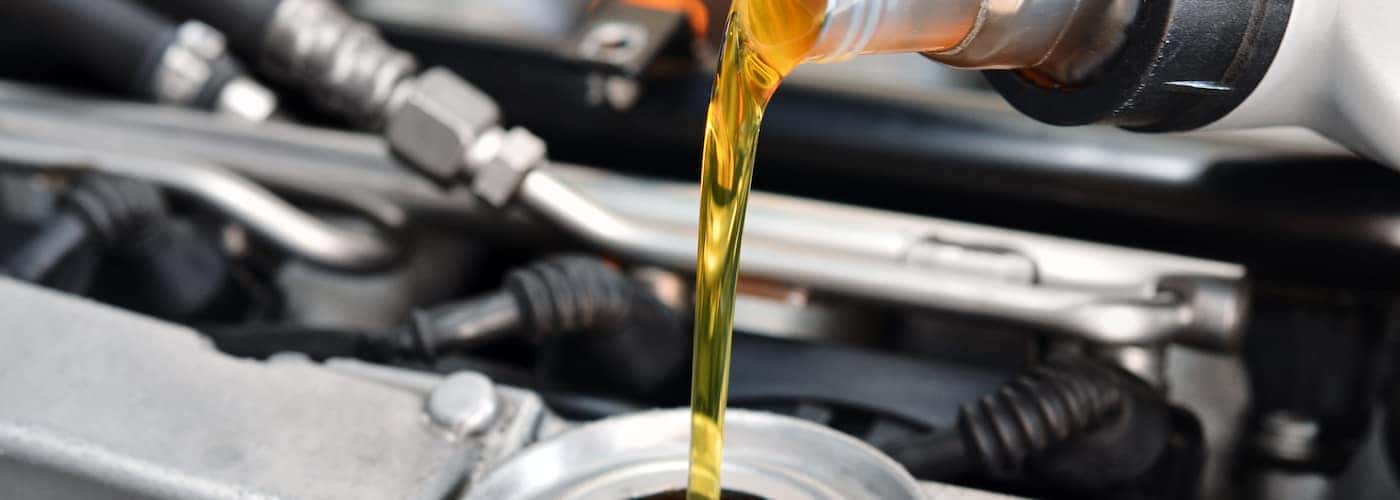Book your routine Oil Change Lockhart with our professional service team.
Book your routine Oil Change Lockhart with our professional service team.
Blog Article
Maximize Your Car'S Efficiency With Routine Oil Changes
Keeping your automobile's performance is a diverse undertaking, with routine oil modifications sticking out as a vital element. Fresh engine oil plays a crucial function in making certain optimal lubrication, minimizing friction, and avoiding endure essential elements. This practice not just enhances gas efficiency yet also cultivates a healthier engine atmosphere. Nonetheless, many chauffeurs ignore the signs that indicate a requirement for an oil adjustment, possibly jeopardizing their lorry's longevity. Understanding these signs and the benefits of timely maintenance might cause substantial renovations in your vehicle's overall performance. What might you be missing?
Relevance of Normal Oil Adjustments
While lots of cars and truck owners may overlook the significance of routine oil changes, overlooking this crucial maintenance task can cause severe repercussions for engine efficiency and longevity. Engine oil plays a crucial duty in lubing relocating parts, minimizing friction, and avoiding getting too hot. In time, oil deteriorates as a result of direct exposure to warm and contaminants, which reduces its performance.
Stopping working to alter the oil frequently can lead to the accumulation of sludge and debris, which can obstruct vital engine parts and result in boosted wear. This not just endangers engine efficiency however can likewise cause costly repair work or also total engine failing. Furthermore, old oil sheds its capability to neutralize acids created throughout combustion, which can bring about corrosion and further damage.
Moreover, many lorry producers recommend specific oil adjustment periods, typically based on gas mileage or time. In recap, regular oil modifications are not simply an idea; they are an important part of liable lorry maintenance that safeguards the engine and enhances general performance.
Benefits of Fresh Oil
Transforming to fresh oil uses numerous advantages that straight boost engine performance and effectiveness. One of the key benefits of fresh oil is its exceptional lubricating buildings. New oil lowers friction between engine components, which not just lessens wear but additionally adds to smoother procedure. This leads to improved fuel performance, as the engine does not have to work as tough to overcome resistance.
Furthermore, fresh oil properly cleanses the engine by putting on hold pollutants and avoiding sludge build-up. Over time, oil ends up being infected with dirt, metal bits, and combustion by-products. On a regular basis replacing oil ensures that these dangerous substances are removed, promoting a cleaner and much healthier engine environment.
In addition, fresh oil aids in ideal temperature level guideline. It dissipates warm extra effectively, avoiding getting too hot and potential damages to engine components. This is specifically essential throughout peak performance situations, where heat build-up can hinder engine functionality.
Indicators Your Oil Needs Transforming
Engine oil is the lifeblood of your vehicle, and recognizing when it requires altering is important for keeping ideal performance - Oil more Change Lockhart. A number of signs indicate that it's time for an oil modification, and remaining vigilant can avoid engine damages and expensive repair services
First, inspect the color and uniformity of the oil. Fresh oil is typically amber and smooth, while old oil might appear dark and abrasive, indicating contamination and reduced effectiveness. A change in thickness can likewise indicate that the oil has damaged down and is no much longer effectively lubricating engine parts.

An additional indication is the oil adjustment light on your control panel. This sharp acts as a tip that the oil has actually reached its life expectancy or that there is an underlying issue requiring focus. Additionally, uncommon engine sounds, such as knocking or ticking, may suggest inadequate lubrication as a result of abject oil.
Last but not least, if you notice oil places or pools under your vehicle, it may indicate a leak that requires instant assessment and possible oil change. Being alert to these signs will certainly ensure your engine runs smoothly and successfully.
Selecting the Right Oil
Choosing the proper oil for your automobile is crucial for making sure ideal performance and long life. Engine oils are available in different types and viscosities, each formulated to fulfill details needs. The initial factor to consider ought to be the producer's recommendations, which can generally be found in the proprietor's guidebook. This support will guide you toward the correct thickness quality, such as 5W-30 or 10W-40, which suggests the oil's thickness at various temperature levels.
Following, consider the type of oil: traditional, artificial, or a mix. Conventional oil is acquired from petroleum and appropriates for older automobiles, while artificial oil offers exceptional security and efficiency for modern-day engines, specifically under severe conditions. Artificial blends combine the advantages of both and are typically an economical option.
In addition, search for oils that meet market standards, such as API (American Petroleum Institute) or ACEA (Organization des Constructeurs Européens d'Automobiles) accreditations. These indicators make sure that the oil has been checked for quality and performance. Inevitably, selecting the appropriate oil not only boosts engine effectiveness however also adds to the total health and wellness of your lorry, paving the method for smoother driving experiences.
Oil Adjustment Frequency Recommendations

Elements affecting oil modification regularity include driving problems, such as stop-and-go web traffic, severe temperature levels, and towing hefty loads. Under serious problems, it could be sensible to alter the oil more often to prevent engine wear. In addition, some modern automobiles come equipped with oil life surveillance systems that provide tailored recommendations based upon driving why not check here behaviors, which can even more maximize the oil change schedule.
It's essential to consult your proprietor's manual for certain referrals tailored to your automobile. Abiding by these guidelines not just maintains engine health however additionally enhances gas performance and reduces discharges. To conclude, routine oil changes, timed appropriately based upon various elements, are an essential element of lorry maintenance that can considerably influence efficiency and longevity.
Conclusion

Report this page